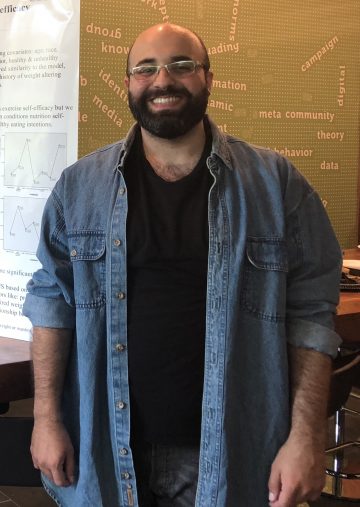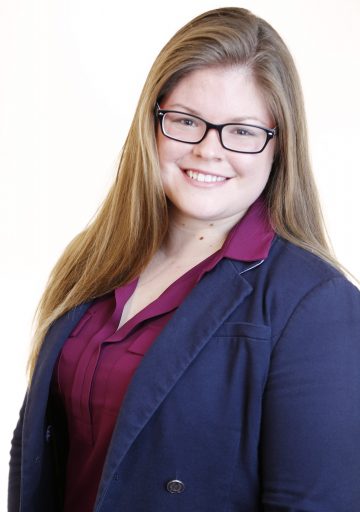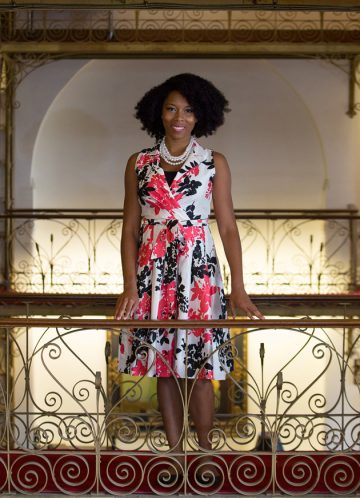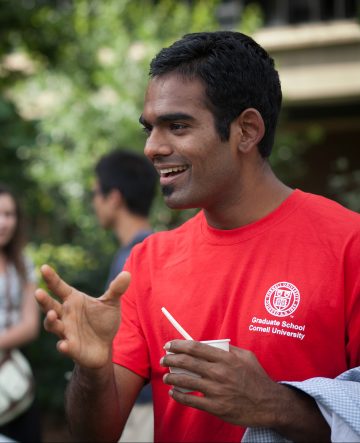‘A voice at the table’: graduate students on governance
By Katya Hrichak

“Everyone had a voice at the table,” said Motasem Kalaji, a doctoral student in communications, about his first meeting as the newest representative on the General Committee. This committee, the governing and oversight body of the Graduate School, is composed of faculty, students, and deans.
Although listening to student input is not a new phenomenon in Cornell’s model of shared governance, the General Committee allows students not only to voice opinions at meetings, but also cast a vote equal to that of the committee’s administrators and faculty representatives.

“Physically sitting at the table in General Committee meetings, reading academic program proposals and debating academic appointments alongside faculty and administrators – and having my vote, and the opinion of graduate students, count for something – validates my feelings on the benefit of student involvement in this system,” said committee member Rebecca Harrison ’14, a doctoral student in science and technology studies.
Wanting to understand how the system of governance works and having their thoughts heard are two common reasons students join campus governance.
Aravind Natarajan, a doctoral student in microbiology and former committee member, was interested in serving in order to support the community and university by acting as a “conduit of information” between graduate students and the Graduate School. He also sought “to learn about the workings of a large successful academic institution such as Cornell as an educational experience in my pursuit to join the academy.”
For biomedical engineering doctoral student Tiffany St. Bernard, another former committee member, the reasoning was similar. “I hadn’t had experience in how the Graduate School’s administration does things, and so that gave me a perspective on how they made their decisions, such as how they changed the degree programs or created a program,” she said. “It was really cool to have a vote on those happenings or decisions and topics as they impact students on campus.”

Student members witnessed firsthand how organizations settled disputes and accounted for each member’s voice.
“I understand how thoughtful faculty and administrators are about prioritizing the success of students. Despite best intentions, there can be a disconnect between student experiences and the perceptions of faculty and administrators,” said Natarajan. “I observed Dean Knuth’s leadership style on the committee and in the Graduate School and took mental notes on good practices – specifically how she handled topics that the committee may have been divided on, and how she actively ensured every voice was heard on every topic.”

Administrators and faculty on the committee benefit as well.
“We may not, as faculty, appreciate how the proposed changes might affect the graduate students, so having them involved is definitely important, and they’re a party to what goes on here,” said Monica Geber, professor of ecology and evolutionary biology.
Kalaji, Natarajan, Harrison and St. Bernard recommend the experience to students looking to become involved.
“It has further augmented my appreciation for Cornell’s genuine commitment to shared governance,” said Natarajan.
St. Bernard said the commitment is not as time consuming as students might assume, and encourages interested students to be actively involved in the campus community to best represent experiences of graduate students as a whole.
“I believe graduate students interested in governance issues should take full advantage of the opportunities the university gives us to engage,” said Harrison. “These opportunities exist because students before us have advocated tirelessly for them.”
“In my experience, the students are sometimes the most thoughtful in their inputs on issues,” said Geber. “I think the faculty benefit a lot by hearing from them.”
Students interested in becoming involved in campus governance can visit the Office of the Assemblies website to explore involvement in the Graduate and Professional Student Assembly or as a student-elected trustee of Cornell’s Board of Trustees. Student representatives to the General Committee are elected by the Graduate and Professional Student Assembly.
Katya Hrichak is a communications assistant in the Graduate School.
